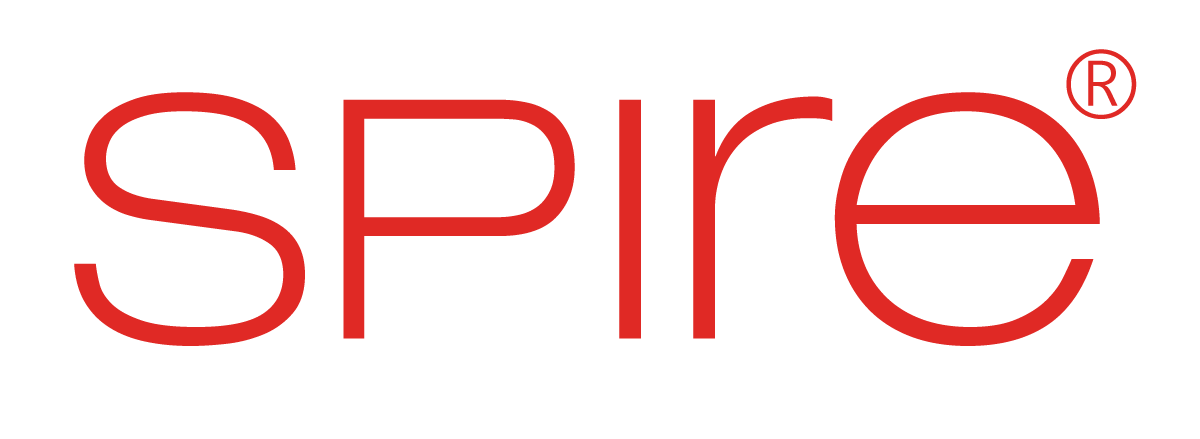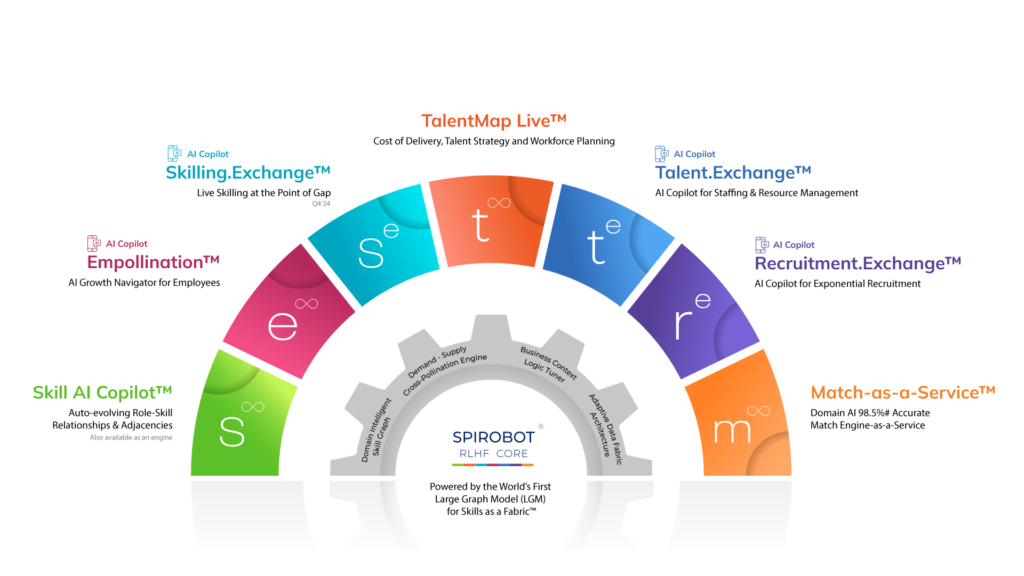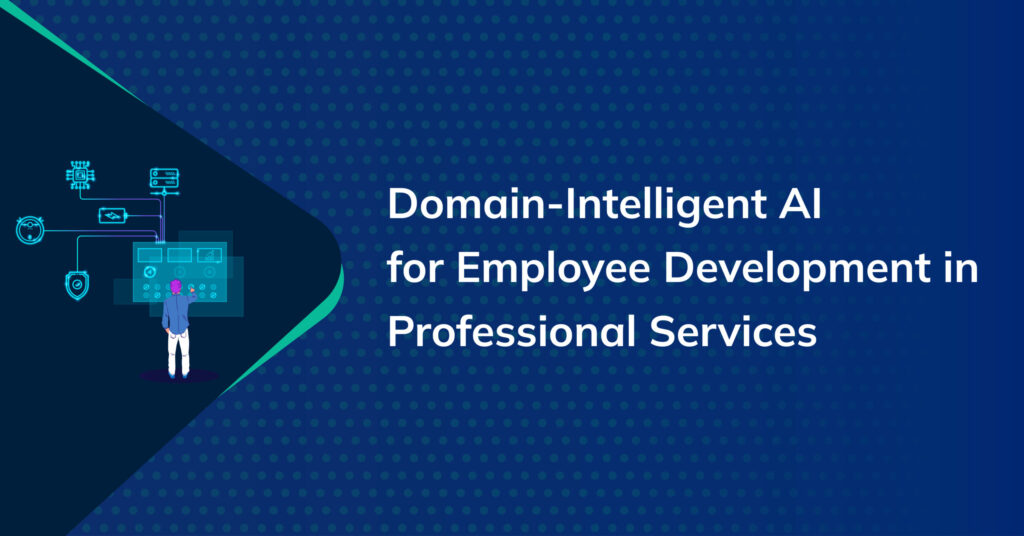The workforce is a dynamic ecosystem that constantly adapts to new technologies, evolving business needs, and a rapidly changing global landscape. Traditional skills frameworks, however, often need help to keep pace. Built on static snapshots of required skills, these frameworks can leave organizations with a workforce unprepared for the future and hinder effective talent management.
In this dynamic environment, AI-powered auto-evolving role-skill frameworks offer a transformative response. These frameworks go beyond streamlining processes; they empower organizations to build a future-ready workforce, foster agility, and achieve a competitive advantage. By continuously learning and adapting, they unlock strategic benefits for talent management and overall business success. Let’s delve deeper into how auto-evolving frameworks unleash a time-saving revolution.
Auto-evolving role-skill frameworks go beyond streamlining processes; they empower organizations to build a future-ready workforce, foster agility, and achieve a competitive advantage.
Auto-Evolving Role-Skill Frameworks Unleash a Time-Saving Revolution
Auto-evolving frameworks streamline several time-consuming HR processes, transforming them into efficient and data-driven operations:
Auto-Evolving Role-Skill Frameworks Simplify –
– Skills Identification and Mapping
– Talent Acquisition
– Learning & Development
Skills Identification and Mapping
Imagine the hours spent manually scouring job descriptions, internal documents, and industry reports to identify the most relevant skills for each role. Auto-evolving frameworks eliminate this tedious task. AI can analyze vast datasets of information, including:
- Job descriptions across the organization and from competitor companies
- Internal documents like project reports and strategic plans
- Industry trends and reports
- Market data and job postings
AI can accurately identify the most relevant skills for each role by analyzing these vast datasets. This saves HR professionals countless hours and reduces the risk of overlooking crucial skills essential for success.
Talent Acquisition
Resumes and interviews are valuable tools, but they often provide a limited snapshot of a candidate’s capabilities. Auto-evolving frameworks can offer a more comprehensive picture. By integrating with applicant tracking systems (ATS) and leveraging skills-based search functionalities, AI can identify potential candidates whose skill profiles closely match the requirements of open positions. This targeted approach eliminates the need to sift through hundreds of irrelevant resumes, significantly reducing time for critical roles.
Learning & Development
Traditional learning and development (L&D) programs often take a one-size-fits-all approach, which can be ineffective. Auto-evolving frameworks provide valuable insights into the skills gaps within the workforce. This allows L&D professionals to:
- Identify employees who require specific skill development.
- Recommend or create personalized learning paths that target those skill gaps.
- Develop targeted training programs focused on the skills most needed by the organization.
This data-driven approach ensures employees acquire the right skills for their roles, optimizing learning efforts and maximizing the return on investment (ROI) for L&D programs.
Strategic Benefits of Auto-Evolving Role-Skill Frameworks for a Competitive Edge
While efficiency gains are significant, the true power of auto-evolving frameworks lies in their ability to drive strategic talent management:
Future-Proofing the Workforce
The business landscape constantly evolves, and the skills required for success constantly change. Traditional skills frameworks often need help to keep pace. Auto-evolving frameworks, however, are designed to be proactive. AI can continuously scan the horizon for emerging skills and trends, analyzing data from various sources such as:
By staying ahead of the curve, auto-evolving role-skill frameworks can identify the skills that will be most critical in the future and ensure that the workforce is equipped to meet those challenges.
- Job postings for cutting-edge positions
- Industry reports on future workforce needs
- Educational programs focused on emerging technologies
By staying ahead of the curve, the framework can identify the skills that will be most critical in the future and ensure that the workforce is equipped to meet those challenges.
This proactive approach to skills development helps organizations future-proof their workforce and maintain a competitive advantage.
Improved Agility & Adaptability
Responding to change quickly in today’s dynamic business environment is essential. Auto-evolving frameworks empower organizations with the agility to respond to changing market conditions and business needs. When the skills required for a particular role evolve, the framework automatically updates to reflect those changes. This allows organizations to:
Auto-Evolving Role-Skill Frameworks provide valuable data to –
– Reskill or upskill employees to meet the new requirements.
– Redeploy talent to different roles where their skill sets are a better fit.
– Quickly identify and recruit talent with the newly required skills.
- Reskill or upskill employees to meet the new requirements.
- Redeploy talent to different roles where their skill sets are a better fit.
- Quickly identify and recruit talent with the newly required skills.
Auto-evolving frameworks enable a more agile approach to talent management, ensuring organizations can adapt to change and seize new opportunities.
Data-Driven Decision Making
Effective talent management relies on good data. Traditional methods can only sometimes provide real-time insights into the skills landscape within an organization. Auto-evolving frameworks provide HR leaders with a wealth of data, including:
- Skill gaps across different departments and teams.
- The distribution of skills throughout the workforce.
- The effectiveness of current learning and development programs.
With this real-time data, HR leaders can make data-driven decisions about talent acquisition, development, and deployment. This ensures that talent management strategies are aligned with business goals and deliver tangible results.
Enhanced Employee Engagement
Employees who feel their skills are utilized and valued are more likely to be engaged and productive. Traditional skills assessments can often be subjective and lead to misplacement of talent. Auto-evolving frameworks rely on objective data to identify employees’ skills and roles where they can best contribute. This allows organizations to:
- Match employees with roles that leverage their strengths and skill sets.
- Provide opportunities for growth and development aligned with employee aspirations.
- Create a culture of continuous learning and skill development.
Auto-evolving frameworks can significantly improve employee engagement and retention by fostering a work environment where employees feel their skills are valued, and they have opportunities to utilize them.
Reduced Bias
Traditional skills assessments can be vulnerable to unconscious bias, leading to the exclusion of talented individuals. Auto-evolving frameworks rely on objective data analysis, minimizing the risk of bias in the talent management process. This ensures that all employees have a fair chance to be considered for opportunities based on their skills and qualifications, regardless of background or demographics.
Spire.AI Auto-Evolving Role-Skill Framework – A Game Changer for Organizations
Spire.AI offers a leading auto-evolving, domain-intelligent Large Graph Model (LGM)-based Role-Skill Framework designed for modern-day organizations. This framework addresses the limitations of traditional approaches by providing the following key features:
Benefits of Spire.AI Auto-Evolving Role-Skill Framework
– Automated Skill Identification
– Domain Intelligence
– Scalability and Configurability
– Single Source of Truth
- Automated Skill Identification: Automatically identifies complex skill mixes and skill requirements for every role at various levels (base, enhanced, expert).
- Domain Intelligence: Leverages a vast LGM containing over 10 million skill nodes, allowing for a nuanced understanding of skill relationships within specific domains.
- Scalability and Configurability: Ready to go live and easily configurable to fit any business context, ensuring the framework seamlessly integrates with existing talent systems.
- Single Source of Truth: Acts as a central repository for continually updated skills and role data, streamlining talent management processes across the organization.
Conclusion
Auto-evolving role-skill frameworks powered by AI are more than just efficiency tools. They are a strategic investment that empowers organizations to build a future-ready workforce, foster agility, and achieve a competitive advantage in the evolving business landscape. By considering solutions like Spire.AI’s framework, organizations can move beyond the limitations of traditional approaches and unlock the transformative power of a continuously evolving skills ecosystem.
In summary, auto-evolving role-skill frameworks offer a comprehensive solution for talent management in today’s dynamic business environment. They streamline HR processes, improve decision-making, and empower organizations to build a future-proof workforce. By leveraging AI and machine learning, these frameworks can provide a significant competitive advantage in the war for talent.






